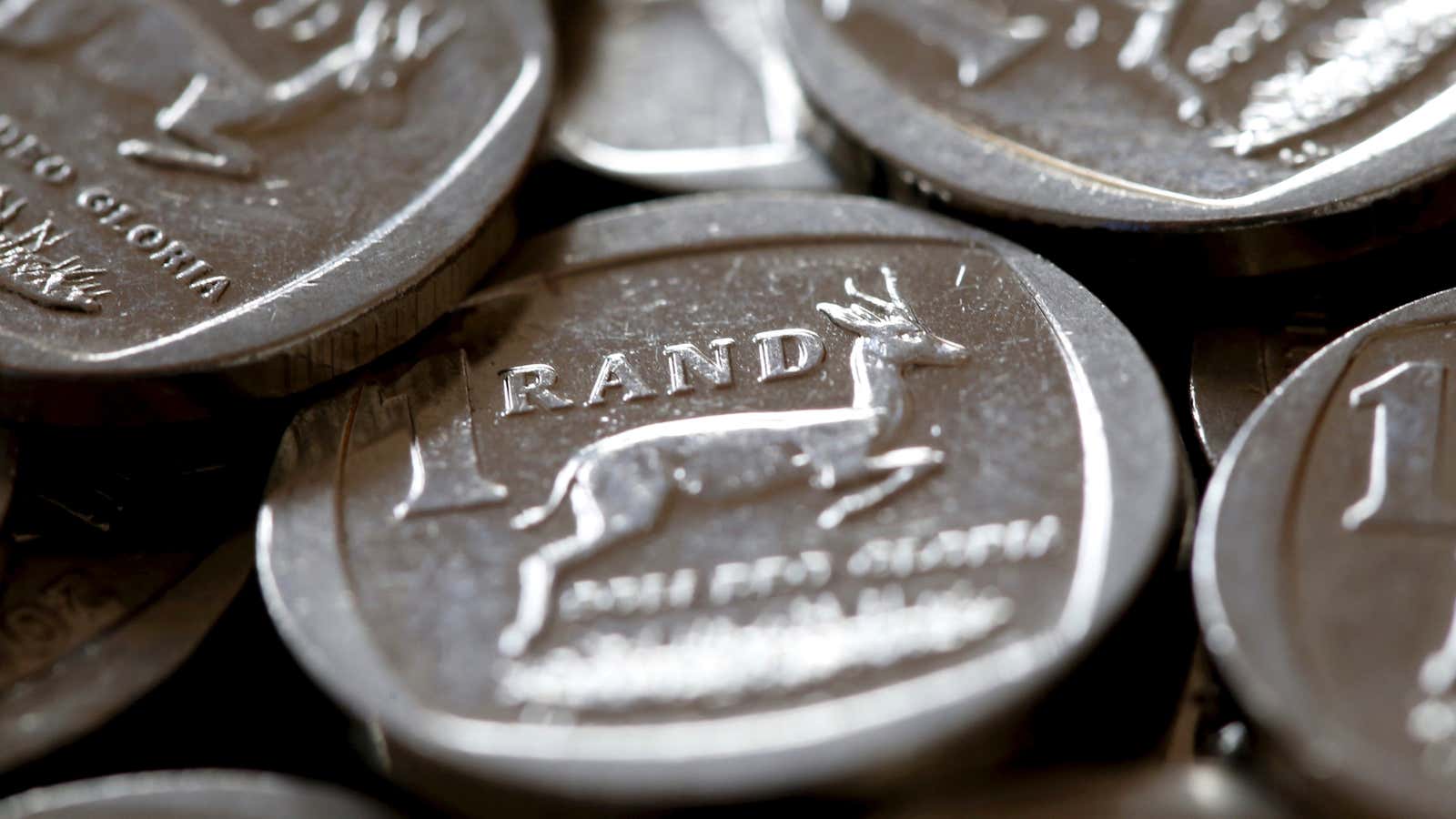As South Africans worriedly watched the rand rise and dip against the dollar, more than a dozen banks were illegally profiting from the volatility, according to local antitrust agency, Competition Commission. It says it found evidence 17 banks were colluding on the rand to dollar exchange rate.
The commission’s two-year investigation found that the banks were involved in price fixing and market allocation regarding the South African rand and the US dollar since April 2015.
The commission found that the banks all had a gentleman’s agreement dating back to at least 2007 to collude on prices for bids, offers and bid-offer spreads for spot trades on rand-to-dollar exchanges. The banks were said to have manipulated the bids by stepping back from certain bids and even creating fictitious bids and offers, a statement by the commission said.
The collusion was a global effort as banks across four continents worked together. They allegedly used the Reuters currency trading platform and the Bloomberg instant messaging service to organize their deals, at times also using the more traditional channel of a telephone call.
The banks worked together by discussing desired prices, coordinating trading times and taking turns to transact, hold or pull bills. These colluded trades would have affected anyone else buying rands or using dollars to buy rands.
The banks named in the investigation are:
- ABSA Bank Limited
- Australia and New Zealand Banking Group Limited
- Bank of America Merrill Lynch International Limited
- Barclays Bank
- Barclays Capital Inc.
- BNP Paribas
- Commerzbank AG
- Credit Suisse Group
- HSBC Bank Plc.
- Investec Ltd.
- JP Morgan Chase & Co.
- JP Morgan Chase Bank N.A.
- Macquarie Bank Limited
- Nomura International Plc.
- Standard Chartered Bank
- Standard Bank of South Africa Ltd.
- Standard New York Securities Inc.
The commission, which is South Africa’s official antitrust agency, has referred the matter to a tribunal for formal prosecution. If found guilty, the commission wants the banks to pay a penalty of 10% their annual turnover. The banks are expected to respond at the tribunal hearing.
The daily average of worldwide turnover in trading in the rand is worth $49 billion, about 1% of the total turnover of foreign exchange markets, according to the South African Reserve Bank. About 30% of daily turnover in rands takes places outside of South Africa while non-resident by non-residents accounts for 57.5% of domestic turnover. The central bank said it was already reviewing ways of protecting the rand from malpractice.
In separate statements, South African banks Standard Bank and ABSA promised to co-operate with the commission Credit Suisse, BNP Paribas, Nomura and Standard New York Securities all declined to comment. The other banks did not respond to requests from Quartz before publication.
